Find Help
More Items From Ergsy search
-
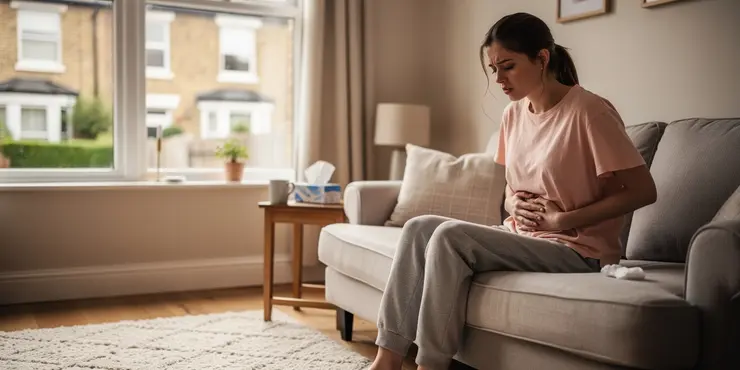
Period pain (dysmenorrhoea) - BSL
Relevance: 100%
-
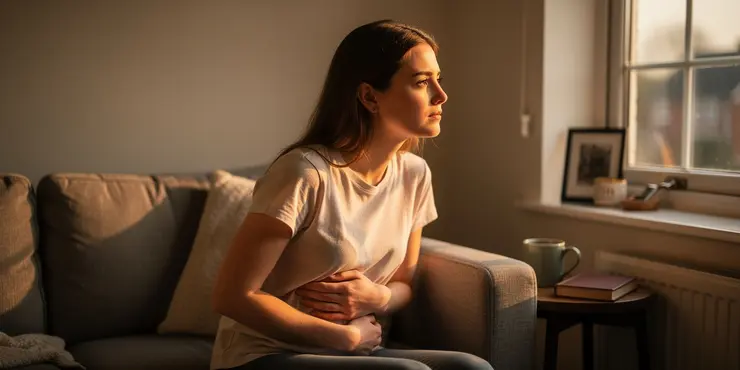
How to deal with period pain | NHS
Relevance: 96%
-
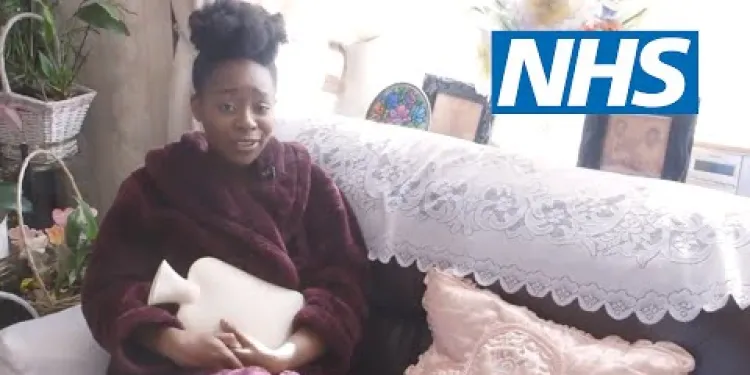
How to deal with period pain | NHS
Relevance: 96%
-
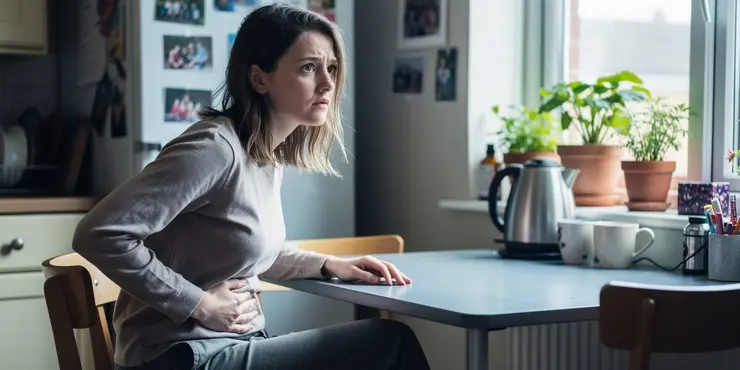
How to deal with period pain | NHS
Relevance: 96%
-

How to deal with period pain | NHS
Relevance: 96%
-
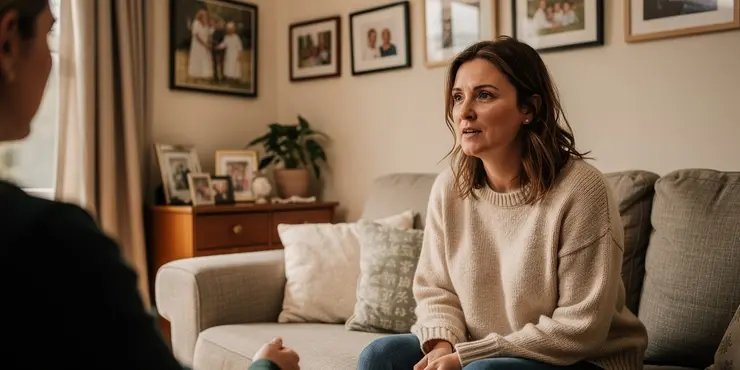
Irregular periods - BSL
Relevance: 63%
-
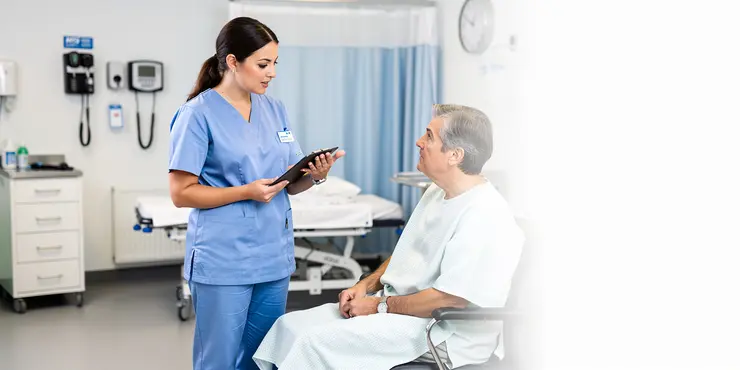
Is a facelift painful?
Relevance: 63%
-
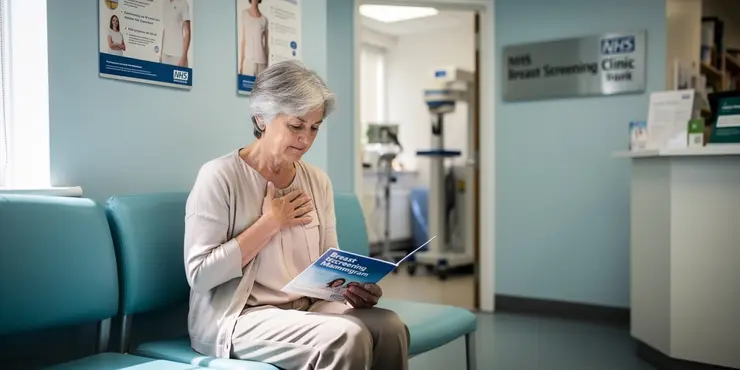
Is a mammogram painful?
Relevance: 59%
-
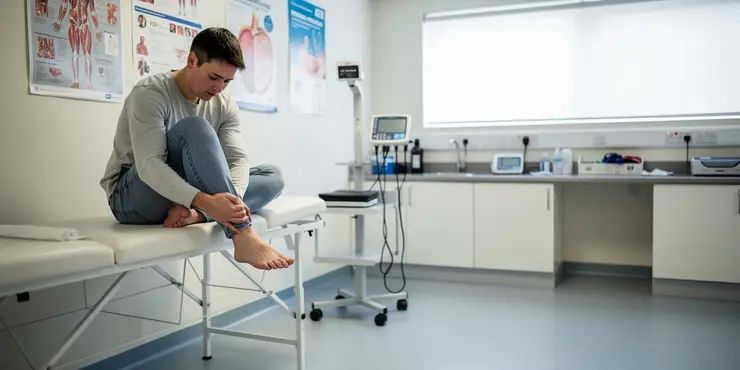
Foot Pain
Relevance: 55%
-
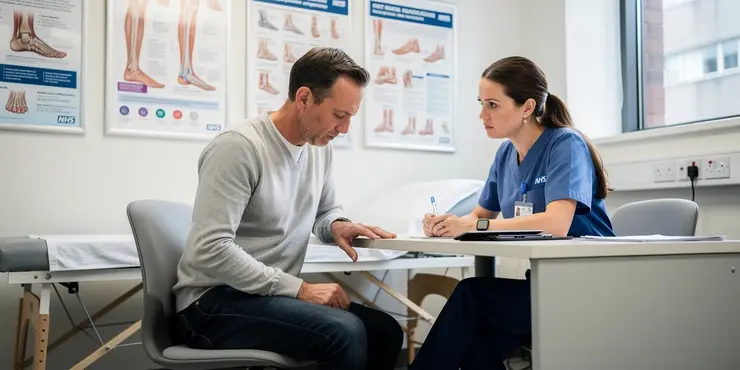
Heel pain | NHS
Relevance: 54%
-

What is the notice period for redundancy?
Relevance: 54%
-

Is impetigo painful?
Relevance: 53%
-
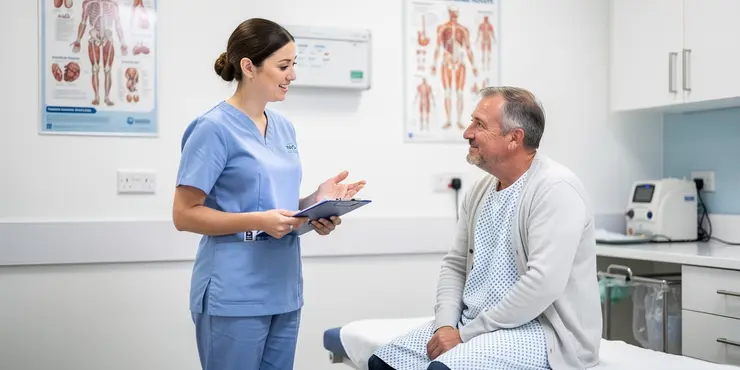
What should I avoid doing during the recovery period?
Relevance: 53%
-
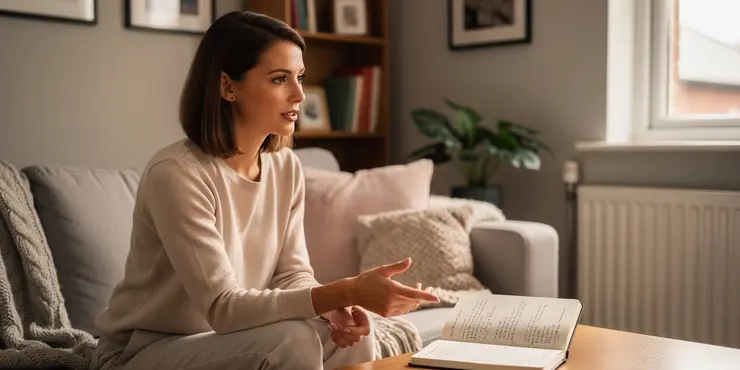
What you need to know about irregular periods
Relevance: 52%
-
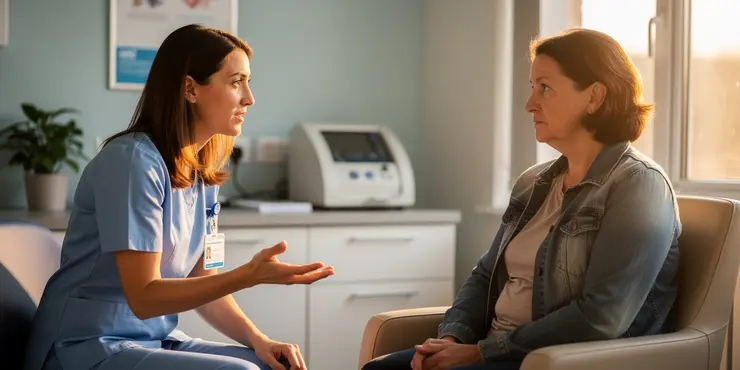
Will I feel pain during the procedure?
Relevance: 51%
-
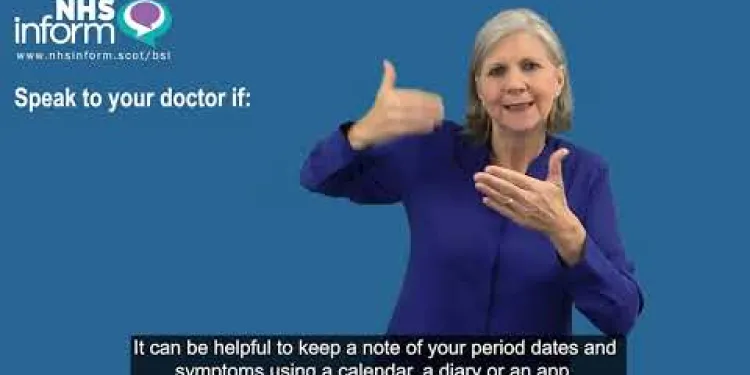
Heavy periods (heavy menstrual bleeding)
Relevance: 51%
-
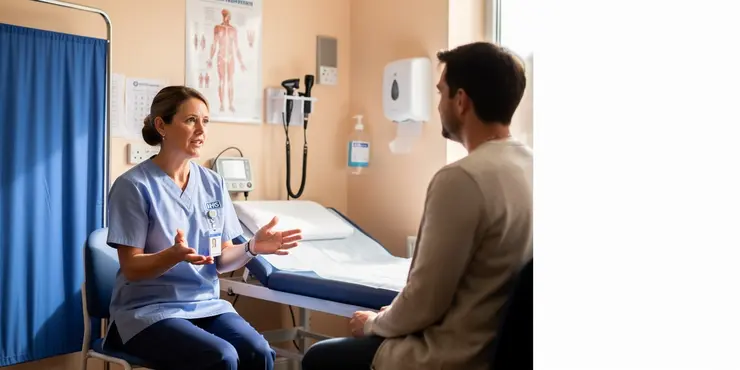
Has the notice period for eviction changed?
Relevance: 51%
-
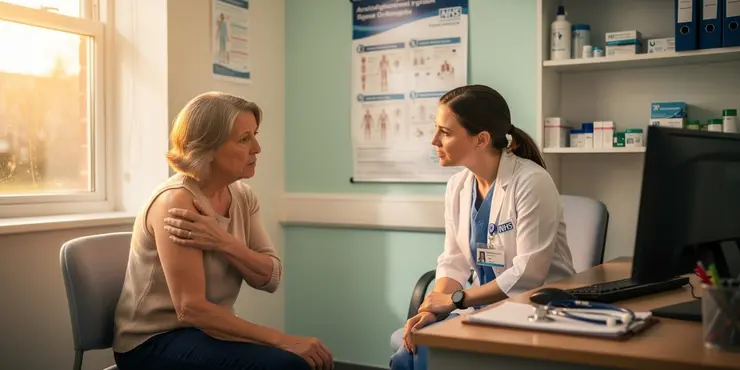
Shoulder pain | NHS
Relevance: 50%
-
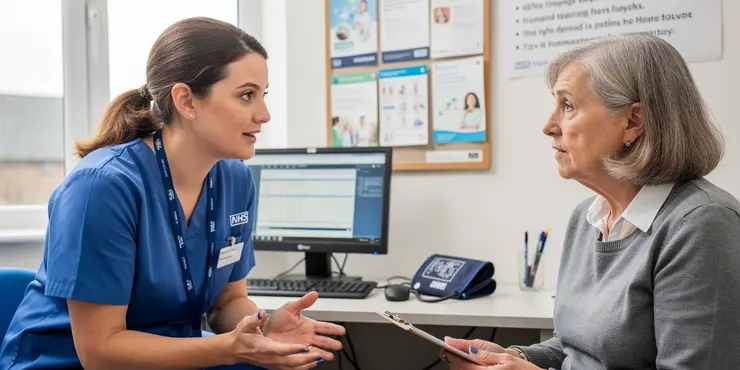
How long is the incubation period for the Marburg virus?
Relevance: 50%
-
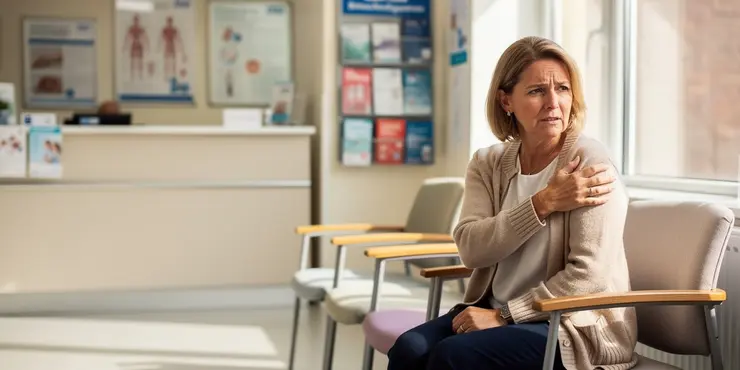
Shoulder pain | NHS
Relevance: 50%
-
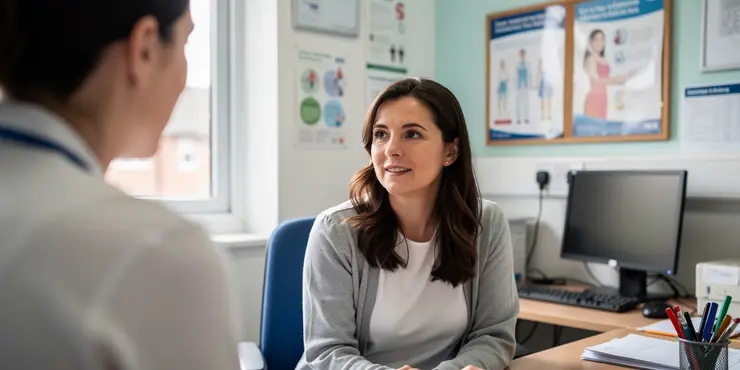
Stomach ache and abdominal pain
Relevance: 49%
-
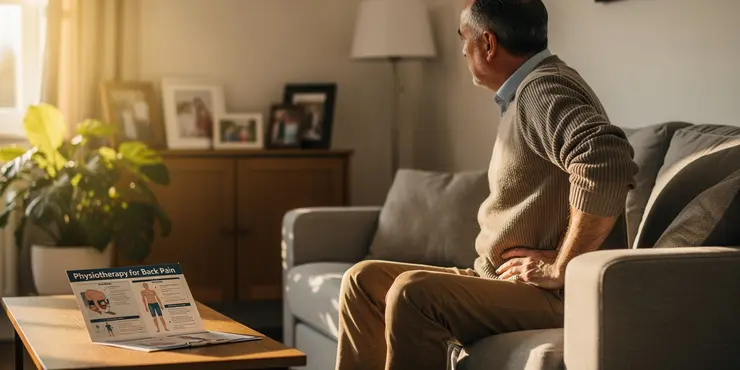
How to treat back pain | NHS
Relevance: 49%
-
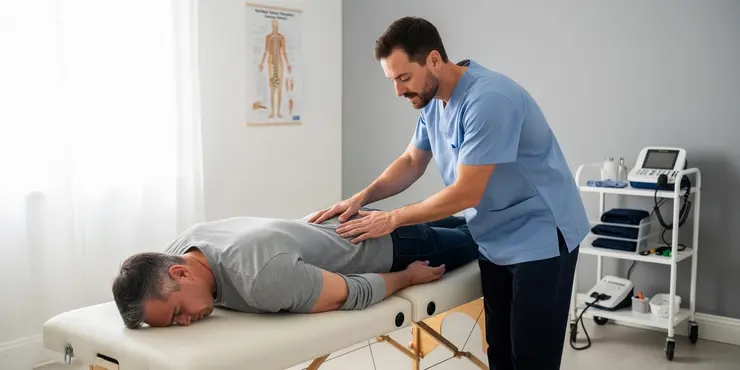
Are chiropractic treatments painful?
Relevance: 48%
-

What is the grace period for the penalty point system?
Relevance: 48%
-

Can I use Ibuprofen for menstrual pain?
Relevance: 48%
-
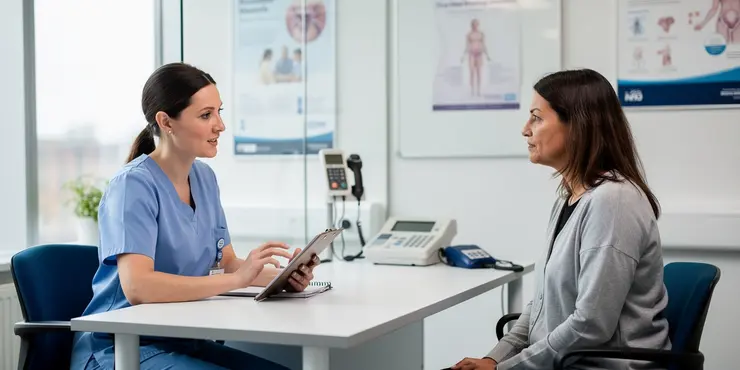
Is the womb lining test painful?
Relevance: 48%
-
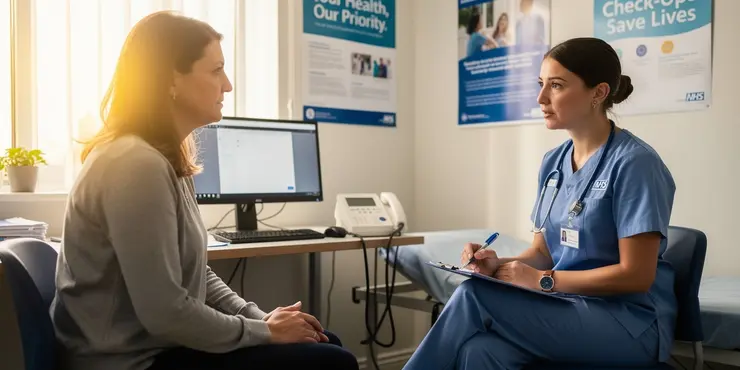
Can the test be performed during my menstrual period?
Relevance: 48%
-
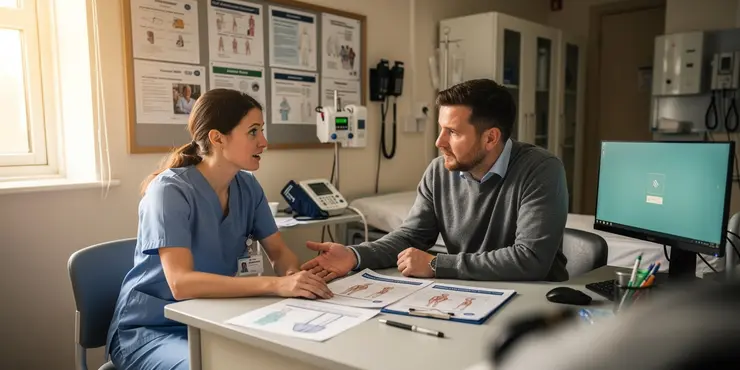
Mechanical Lower Back Pain
Relevance: 48%
-
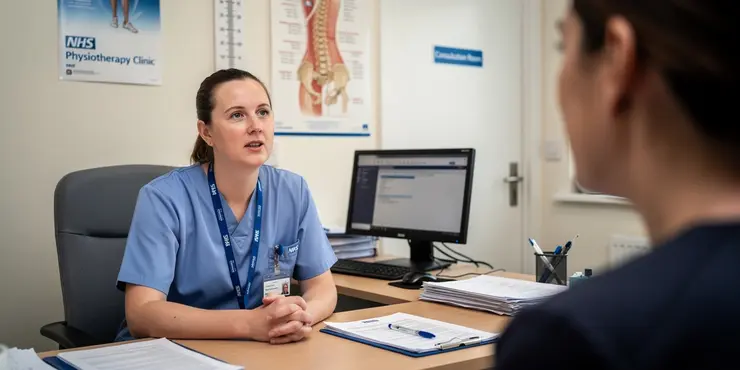
Advice on neck pain and whiplash
Relevance: 47%
-
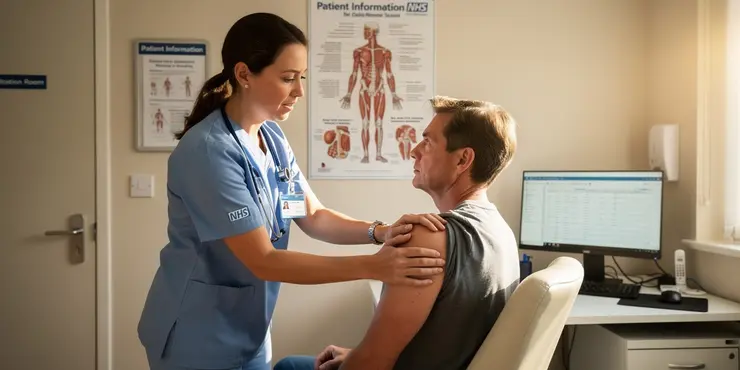
Shoulder subacromial shoulder pain
Relevance: 47%
-
Shoulder pain | NHS
Relevance: 47%
-
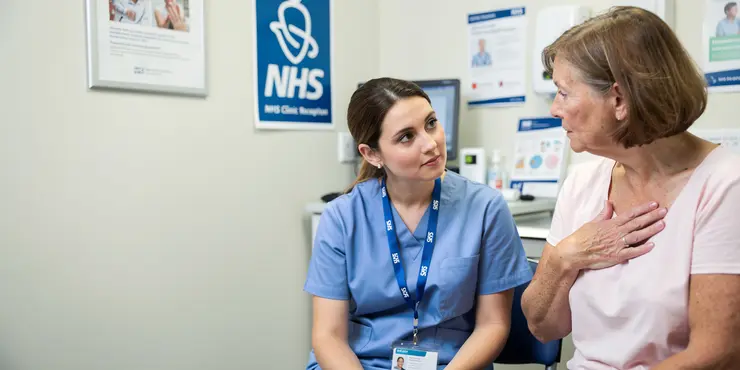
Treating breast pain | United Lincolnshire Hospitals NHS Trust
Relevance: 46%
-
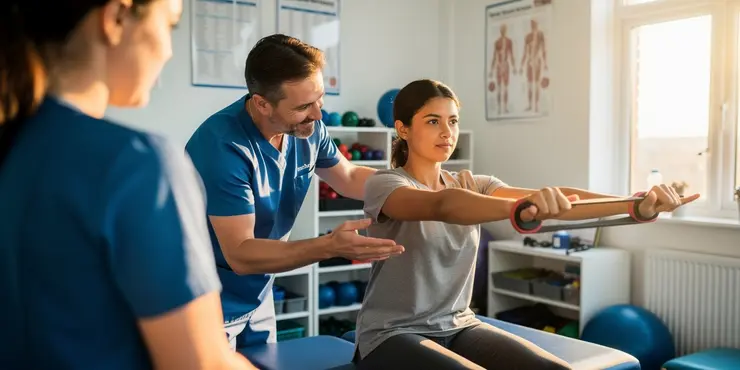
Greater trochanteric pain syndrome
Relevance: 46%
-
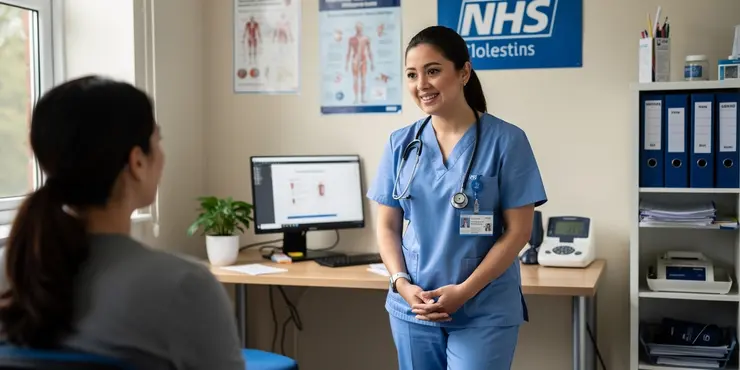
What happens when the introductory APR period ends?
Relevance: 46%
-
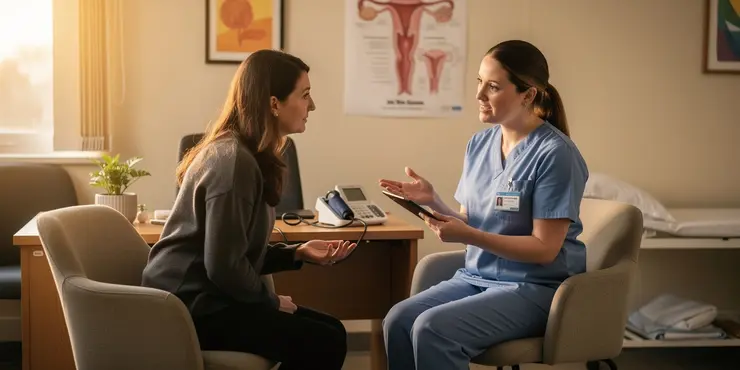
Is a womb lining test painful?
Relevance: 45%
-
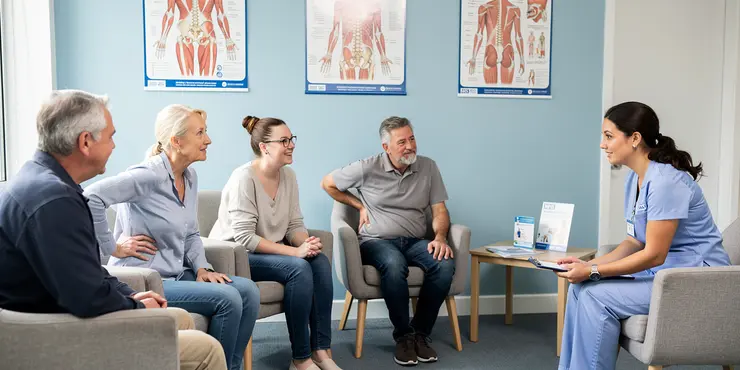
Useful information for patients with lower back pain
Relevance: 45%
-
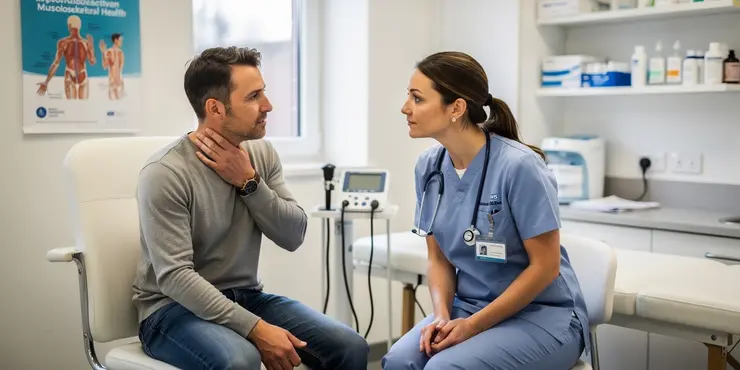
What is the role of pain management in treating whiplash?
Relevance: 45%
-
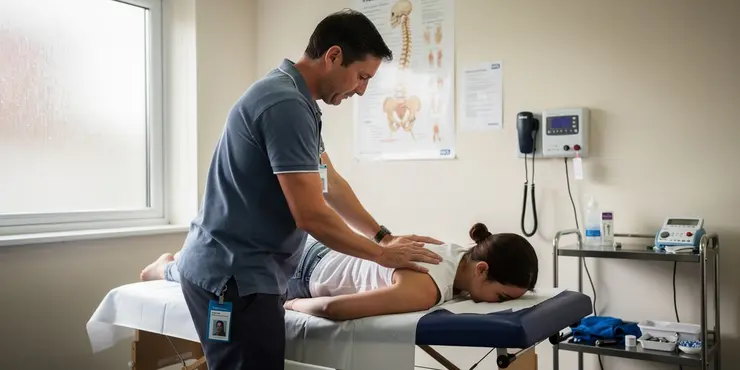
How do chiropractors treat back pain?
Relevance: 45%
-
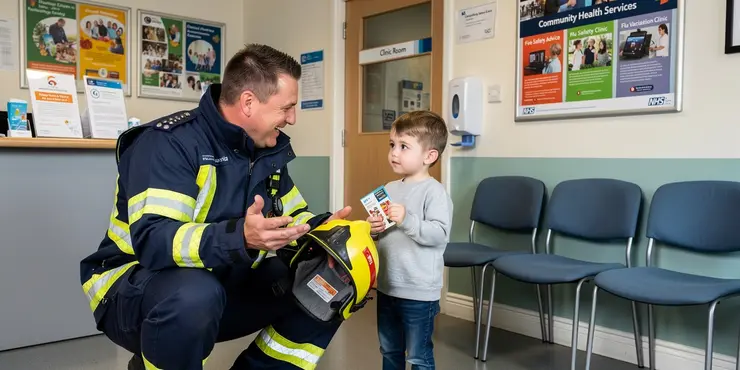
What is the minimum service period to qualify for firefighter pension benefits?
Relevance: 44%
-
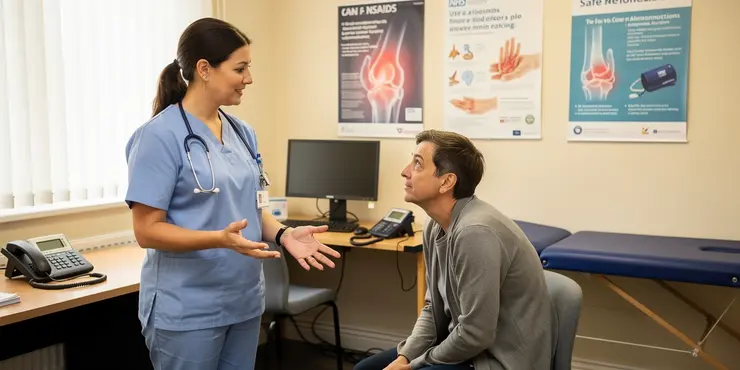
How do NSAIDs work to reduce pain?
Relevance: 43%
How to Deal with Period Pain | NHS
Understanding Period Pain
Period pain, also known as dysmenorrhea, is a common issue experienced by many women during their menstrual cycle. The pain is usually felt in the lower abdomen and can range from mild to severe. While it is a natural part of the menstrual cycle, managing period pain effectively is important for maintaining quality of life.
Home Remedies and Self-Care
There are several home remedies and self-care techniques that can help alleviate period pain:
- Heat Therapy: Applying a hot water bottle or heating pad to the lower abdomen can help relax the muscles and reduce cramping.
- Exercise: Light to moderate exercise, such as walking or stretching, can increase blood flow and reduce pain.
- Hydration: Drinking plenty of water helps prevent bloating, which can exacerbate cramps.
- Relaxation Techniques: Practices such as yoga, meditation, and deep breathing can help manage stress and alleviate discomfort.
Over-the-Counter Medications
Several over-the-counter (OTC) medications can be effective in relieving period pain:
- Ibuprofen: This nonsteroidal anti-inflammatory drug (NSAID) can reduce inflammation and pain.
- Paracetamol: Acetaminophen (paracetamol) can be used to relieve mild to moderate pain.
- Aspirin: Another NSAID, aspirin can help reduce both pain and inflammation.
Always follow the dosing guidelines and consult with a healthcare professional if you have any concerns about taking these medications.
When to Seek Medical Advice
If period pain is severe, persistent, or accompanied by other symptoms such as heavy bleeding, it is important to seek medical advice. Conditions like endometriosis or fibroids may require medical intervention.
The NHS provides a number of resources and services for managing period pain. You can consult your GP for a thorough evaluation and recommended treatment options if your pain is impacting your daily life.
Conclusion
While period pain can be an uncomfortable part of the menstrual cycle, there are numerous strategies to manage and alleviate the pain. From home remedies and OTC medications to seeking professional medical advice, taking proactive steps can help you maintain your well-being during your period.
How to Deal with Period Pain
What is Period Pain?
Period pain is the hurt you feel in your lower tummy during your period. Many girls and women get it. It can hurt a little or a lot. Learning how to feel better can help you stay happy and active.
Ways to Feel Better at Home
There are some simple things you can do at home to feel better:
- Use Heat: Hold a warm bottle or heating pad on your tummy. This can help stop the cramps.
- Move Around: Do some light exercise like walking or stretching. It helps blood flow and eases the pain.
- Drink Water: Drinking lots of water can stop your tummy from feeling puffy and tight.
- Relax: Try yoga or take deep breaths. It can help you feel calm and hurt less.
Medicines You Can Buy
There are medicines you can buy in a store that help with period pain:
- Ibuprofen: This medicine helps to stop swelling and pain.
- Paracetamol: This one helps if the pain is not too bad.
- Aspirin: This helps with pain and swelling too.
Always follow the instructions on the medicine box. Talk to a doctor if you're unsure.
When to Ask a Doctor
If the pain is really bad or doesn't go away, talk to a doctor. If you also have heavy bleeding, it's important to get help. Sometimes there are other health issues that need treatment.
The NHS is here to help you. You can talk to your doctor for more advice if your period pain stops you from doing everyday things.
Final Thoughts
Period pain can be hard to deal with, but there are lots of ways to feel better. From things you can try at home to medicines or talking to a doctor, there are many ways to help you feel okay during your period.
Frequently Asked Questions
What causes period pain?
Period pain is caused by the muscular wall of the womb tightening, or contracting. Mild contractions continually happen in your womb, but they're usually so mild that most women can't feel them.
How can I relieve period pain?
You can try painkillers, such as ibuprofen or aspirin, gentle exercise, or a warm bath. Placing a heat pad or hot water bottle on your tummy may also help.
Are there any lifestyle changes that can reduce period pain?
Yes, regular exercise and relaxation techniques like yoga or Pilates can help. Eating a balanced diet and reducing caffeine and alcohol intake may also alleviate symptoms.
Can birth control help with period pain?
Yes, certain types of hormonal contraception, such as the combined pill, contraceptive patch, and intrauterine system (IUS), can help reduce period pain.
When should I see a doctor about period pain?
If your period pain is severe, disrupts your life, or doesn't improve with over-the-counter treatments, you should see your GP for further advice.
Are there any over-the-counter medications that can help?
Yes, non-steroidal anti-inflammatory drugs (NSAIDs) like ibuprofen, aspirin, or naproxen can help. Paracetamol may also be an option.
Can period pain be a sign of a more serious condition?
Severe or unusual period pain can sometimes be a symptom of conditions like endometriosis or fibroids. If you're concerned, it's best to consult a doctor.
Can stress affect period pain?
Yes, stress can make period pain worse. Finding ways to manage stress, such as through relaxation techniques or counselling, may help.
Are there any natural remedies for period pain?
Yes, some women find relief from natural remedies like herbal teas, acupuncture, or dietary supplements such as magnesium.
Is it normal to have period pain every month?
Many women experience some level of period pain monthly, but if it is severe or worsening, it should be discussed with a healthcare professional.
Does diet affect period pain?
A healthy, balanced diet can help manage period pain. Reducing intake of caffeine, alcohol, and salty or fatty foods may also be beneficial.
Can exercise help with period pain?
Yes, light to moderate exercise can help relieve period pain. Activities like walking, swimming, or yoga can be especially effective.
What are some common symptoms associated with period pain?
Common symptoms include cramping pain in the lower abdomen, lower back pain, nausea, headache, and diarrhoea.
Can a heat pad or hot water bottle help with period pain?
Yes, applying heat to your lower abdomen can help relax the muscles and reduce cramping and pain.
Can taking magnesium supplements help with period pain?
Some studies suggest that magnesium supplements may help alleviate period pain, although it's always best to consult with a healthcare professional before starting any new supplement.
Why do periods hurt?
When you have your period, your tummy might hurt. This is because the body is getting rid of the lining of the womb. The womb squeezes tight to do this. This squeezing can hurt.
Some people find it helpful to use a warm water bottle on their tummy. Others might take medicine to feel better.
If it hurts a lot, it's good to talk to a doctor.
Period pain happens when the muscles in your womb (the part of your body where a baby can grow) squeeze tight. These squeezes are called contractions. Your womb does these squeezes all the time, but they are usually so gentle that you don't feel them.
How can I make period pain feel better?
You can try taking medicine for pain, like ibuprofen or aspirin. Doing some gentle exercise or having a warm bath can help too. You might also feel better if you put a heat pad or hot water bottle on your tummy.
Can changing how I live help stop period pain?
Some things you do every day can help with period pain. Here are a few ideas:
- Exercise: Moving your body can help you feel better. Try walking, stretching, or dancing.
- Eating well: Eat fruits and veggies. Drink lots of water.
- Relaxation: Take deep breaths or try yoga. Staying calm can help ease pain.
- Warmth: Use a warm water bottle on your tummy to help with cramps.
- Rest: Getting enough sleep helps your body feel better.
If the pain is too much, talk to a doctor. They can give you more ideas to help.
Yes, doing exercise often can help you feel better. Relaxing exercises like yoga or Pilates are good for you too. Eating healthy foods and drinking less caffeine and alcohol can also help you feel better.
Can birth control help with period pain?
Birth control can help with period pain. It can make periods hurt less.
Some people use pills or patches. These can stop the pain.
Talking to a doctor is a good idea. They can help you choose what is best.
Yes, some birth control methods can help with period pain. These include the pill you take every day, the patch you wear on your skin, and the IUS, which is a small device placed inside the body.
When should I see a doctor about period pain?
Do you have tummy pain when you have your period?
Sometimes, this is okay. But if the pain is very bad, it might be good to talk to a doctor.
If you are unsure, ask your family or friends for advice.
Using a calendar to track your pain might help. You can show this to the doctor.
If you have more questions, you can call a health line for help.
If your period pain is very bad, stops you from doing things, or doesn't get better with medicine you can buy at the store, you should talk to your doctor for more help.
Can I buy medicine without a prescription to help me?
Yes, some medicines can help. These include ibuprofen, aspirin, or naproxen. Paracetamol is another choice.
Is period pain a sign of something more serious?
Period pain can hurt. But sometimes, it might mean something else is wrong. If someone's period pain is really bad or different from usual, it's good to talk to a doctor.
Tools that can help:
- Ask a friend or family member to help read and understand information.
- Use pictures to explain things.
- Write down questions to ask the doctor.
Very bad or strange period pain might mean you have problems like endometriosis or fibroids. If you are worried, talk to a doctor.
Does stress make periods hurt more?
Stress can make period pain worse. Stress is when you feel worried or upset. Period pain is when your tummy hurts during your period. Relaxing and talking to someone can help. You can also try deep breathing or gentle exercises.
Yes, being stressed can make period pain feel worse. Finding ways to relax, like doing calming exercises or talking to someone who can help, might make you feel better.
What can help with period pain?
Do you get a sore belly or back when you have your period? Here are some simple things that might help:
- Use a warm water bottle or heating pad on your tummy or back.
- Try gentle exercises like walking or stretching.
- Drink warm drinks like tea or hot chocolate.
- Take deep breaths and try to relax.
If the pain is really bad, you can talk to an adult you trust or visit a doctor. They can help you feel better.
Yes, some women feel better with natural help like drinking herbal teas, getting acupuncture, or taking vitamins like magnesium.
Is it normal to have stomach pain with your period every month?
Many people have stomach pain when they get their period. This is called period pain. Having some pain is normal. It can happen every month when you have your period.
But if the pain is very strong and makes it hard to do things, you should talk to a doctor. They can help you find ways to feel better.
You can try warm things like a hot water bottle on your tummy. This might help the pain. Resting and relaxing can also help.
If reading is hard, you can ask someone to read with you. You can also use audiobooks to help.
A lot of girls and women feel pain during their period every month. If the pain is really bad or getting worse, it's important to talk to a doctor or nurse.
Does Food Change Period Pain?
Does what you eat make period pain hurt more or less? Eating healthy foods might help. Eating too much junk food might not. Try to eat fruits and vegetables. Drink water too. If you need help, ask a doctor or nurse. You can also use a calendar to track your periods and see if food makes a difference.
Eating healthy foods can help with period pain. Try eating less caffeine, alcohol, and salty or fatty foods. This can make you feel better.
Does exercise help with period pain?
Periods can hurt. Exercise like walking, stretching, or yoga can help to feel better. It can make the pain less strong.
Try gentle exercises when you have period pain. They can help relax your muscles.
Use tools like heat packs for extra comfort during your period.
Yes, gentle exercise can help with period pain. Things like walking, swimming, or yoga are really good to try.
What are common signs of period pain?
Here are some signs you might feel during your period:
- Belly ache or cramps
- Feeling tired
- Backache
- Headache
- Feeling sick
To feel better, you can:
- Use a warm heat pack
- Rest and relax
- Drink lots of water
When you feel sick, you might have these signs:
- A tummy ache that hurts or cramps.
- A sore back.
- A feeling of wanting to throw up.
- A headache.
- Runny poo.
You can try talking to a doctor or using a heating pad for pain. Drinking water and resting can help too.
Can a heat pad or hot water bottle help with period pain?
Does your tummy hurt when on your period?
A warm heat pad or a hot water bottle can help. It makes the tummy feel better.
You can put it on your tummy or back. Leave it there for a short time. It should feel warm, not hot.
Ask an adult to help you if you need it.
Yes, putting something warm on your lower tummy can help the muscles relax. This can make cramps and pain feel better.
Can magnesium pills help with period pain?
Some studies say that taking magnesium might help with period pain. But, you should talk to a doctor before taking any new pills.
Useful Links
This website offers general information and is not a substitute for professional advice.
Always seek guidance from qualified professionals.
If you have any medical concerns or need urgent help, contact a healthcare professional or emergency services immediately.
Some of this content was generated with AI assistance. We’ve done our best to keep it accurate, helpful, and human-friendly.
- Ergsy carfully checks the information in the videos we provide here.
- Videos shown by Youtube after a video has completed, have NOT been reviewed by ERGSY.
- To view, click the arrow in centre of video.
- Most of the videos you find here will have subtitles and/or closed captions available.
- You may need to turn these on, and choose your preferred language.
- Go to the video you'd like to watch.
- If closed captions (CC) are available, settings will be visible on the bottom right of the video player.
- To turn on Captions, click settings .
- To turn off Captions, click settings again.
More Items From Ergsy search
-

Period pain (dysmenorrhoea) - BSL
Relevance: 100%
-

How to deal with period pain | NHS
Relevance: 96%
-

How to deal with period pain | NHS
Relevance: 96%
-

How to deal with period pain | NHS
Relevance: 96%
-

How to deal with period pain | NHS
Relevance: 96%
-

Irregular periods - BSL
Relevance: 63%
-

Is a facelift painful?
Relevance: 63%
-

Is a mammogram painful?
Relevance: 59%
-

Foot Pain
Relevance: 55%
-

Heel pain | NHS
Relevance: 54%
-

What is the notice period for redundancy?
Relevance: 54%
-

Is impetigo painful?
Relevance: 53%
-

What should I avoid doing during the recovery period?
Relevance: 53%
-

What you need to know about irregular periods
Relevance: 52%
-

Will I feel pain during the procedure?
Relevance: 51%
-

Heavy periods (heavy menstrual bleeding)
Relevance: 51%
-

Has the notice period for eviction changed?
Relevance: 51%
-

Shoulder pain | NHS
Relevance: 50%
-

How long is the incubation period for the Marburg virus?
Relevance: 50%
-

Shoulder pain | NHS
Relevance: 50%
-

Stomach ache and abdominal pain
Relevance: 49%
-

How to treat back pain | NHS
Relevance: 49%
-

Are chiropractic treatments painful?
Relevance: 48%
-

What is the grace period for the penalty point system?
Relevance: 48%
-

Can I use Ibuprofen for menstrual pain?
Relevance: 48%
-

Is the womb lining test painful?
Relevance: 48%
-

Can the test be performed during my menstrual period?
Relevance: 48%
-

Mechanical Lower Back Pain
Relevance: 48%
-

Advice on neck pain and whiplash
Relevance: 47%
-

Shoulder subacromial shoulder pain
Relevance: 47%
-
Shoulder pain | NHS
Relevance: 47%
-

Treating breast pain | United Lincolnshire Hospitals NHS Trust
Relevance: 46%
-

Greater trochanteric pain syndrome
Relevance: 46%
-

What happens when the introductory APR period ends?
Relevance: 46%
-

Is a womb lining test painful?
Relevance: 45%
-

Useful information for patients with lower back pain
Relevance: 45%
-

What is the role of pain management in treating whiplash?
Relevance: 45%
-

How do chiropractors treat back pain?
Relevance: 45%
-

What is the minimum service period to qualify for firefighter pension benefits?
Relevance: 44%
-

How do NSAIDs work to reduce pain?
Relevance: 43%


